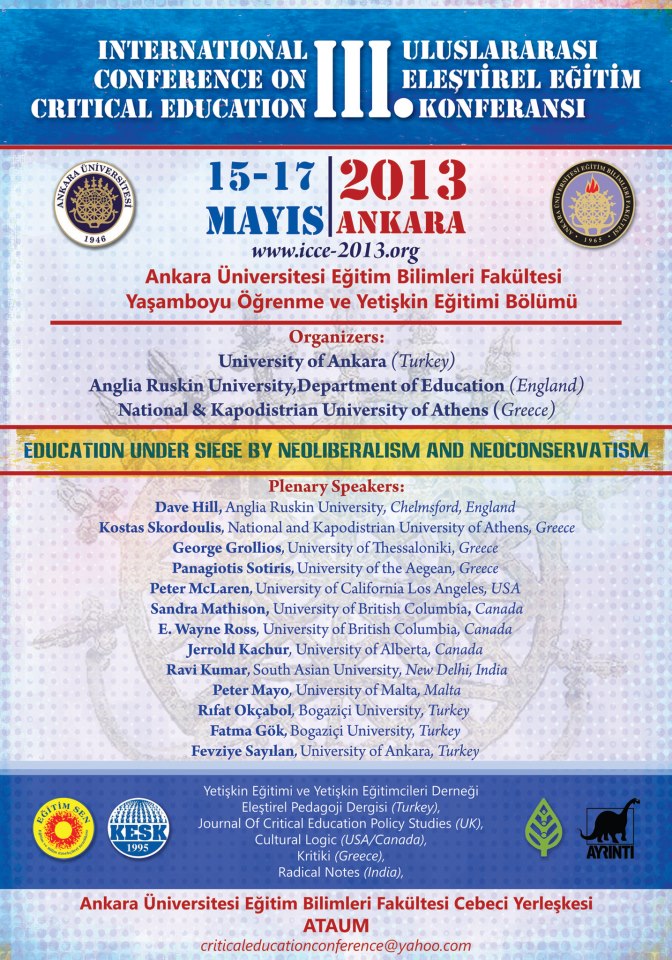Critical Education has just published its latest issue at http://ojs.library.ubc.ca/index.php/criticaled. We invite you to review the
Table of Contents here and then visit our web site to review articles and items of interest.
Thanks for the continuing interest in our work,
Stephen Petrina
Sandra Mathison
E. Wayne Ross
Institute for Critical Education Studies
University of British Columbia
https://blogs.ubc.ca/ices/
Critical Education
Vol 4, No 7 (2013)
Table of Contents
http://ojs.library.ubc.ca/index.php/criticaled/issue/view/182445
Articles
——–
Healthy Systems: Literature, Nature, and Integrity
Rachel A Wilkinson
Abstract
Our interactions with everyday objects inform our understanding of the world; yet today much of what we use is tossed immediately. Items made in haste, used in haste, and made into waste belie the values that, for centuries, humans have taken for granted. What do our consumption practices teach our students today? I suggest that apathy, loss of agency, lack of integrity, and disconnection is often a result of our incomplete understanding of what lasts and where things go when we’re finished with them. Fortunately, the literature classroom, which can introduce students to texts such as “God’s Grandeur,” Grapes of Wrath, and Frankenstein, among others, offers educators an opportunity to challenge our throwaway society and reverence what lasts.
